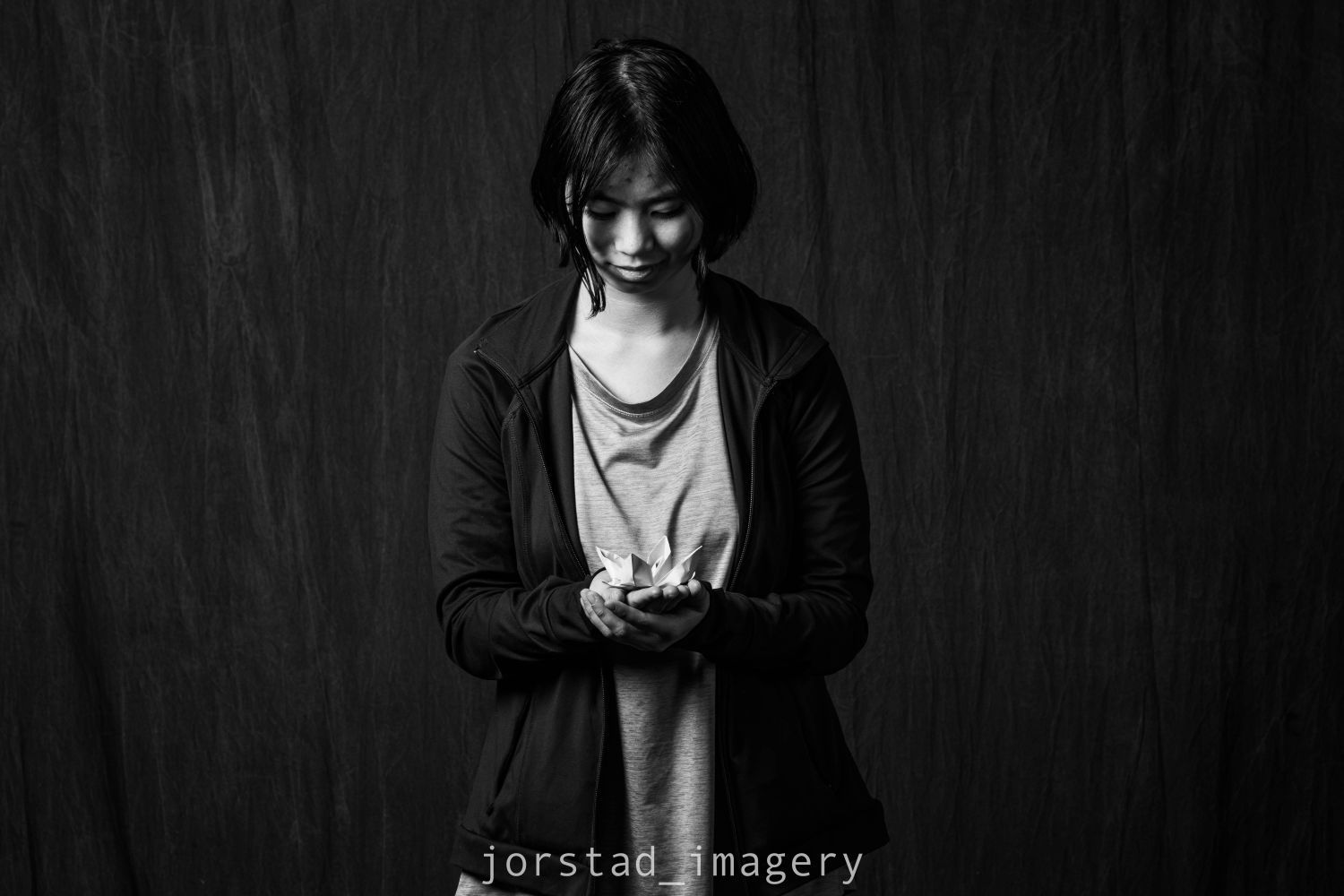We Are America
A Flower By Any Other Name Would Smell Just as Sweet
By Allison

Irondequoit High School, Rochester, New York
I was ten months old when I was adopted from China to the U.S. Even at a young age, I never felt like I truly belonged anywhere. My jet-black hair and eyes, coupled with my darker skin tone, starkly contrast with the rest of my European family. Looking around every classroom produced the same lingering, solemn loneliness after realizing there was seldom anyone who resembled me. My parents embraced my heritage from the beginning, introducing me to Chinese culture, but their shower of support never overcame my isolation and self-doubt.
In middle and high school, I started focusing on my origins and alienation. The differences between me and my peers were evident, and I felt increasingly guilty for not knowing enough about Chinese culture and heritage. Learning about China in history class only perpetuated this guilt, as every new fact we covered was just another indication of my ignorance. Among the few Chinese friends that I did have, I found a different loneliness; they all were raised with more familiarity with the culture and language. As much as I cherished what they shared with me, I always felt too foreign to fit in with my classmates but not “Chinese enough” to accept myself with my Chinese friends. I had no personal memories of China, nor knowledge of my birth parents or the nannies who had cared for me in the orphanage. I felt like a fraud in my own mind.
It wasn’t until 2020 that I started asking questions that caused real dread. When I learned that China’s one-child policy was likely a reason I was adopted, I realized that I might have a birth-sibling whom I would never meet. It was the first time I considered the possibility that my birth parents were not alive anymore. The frenzied research began. The waves of guilt and obligation too immense to ignore often caused me to drop whatever I was supposed to be doing to dig for information. I’d have a disorganized list of links across devices and a chain of tabs open at once during my frantic searches. I would speed through articles while hiding my computer screen from the teacher if I succumbed to the urge during class, anticipating having to hide my tears if I uncovered something that shook me. Often, I emerged from these searches with more questions, more dejection and loneliness. One issue consumed me the most: I only knew half of my Chinese name. “Hua Qiao'' was my birth name, with only the first character known to me - 花 – flower. Despite all my searching and piecing together the meaning of my name, I could never write my full name with confidence. I couldn’t solve most of the mysteries surrounding my origins but the fact I couldn’t piece together one of the only things I still had from my birth parents–something so simple and integral to identity itself–was unbearable. How could I find myself when I didn’t even know my own name?
I may never completely resolve my identity crisis, nor know enough about myself and my origins, but I found some peace. I realized self-discovery shouldn’t be a solitary journey. I talked with my mother about my research and bottled-up loneliness. I started retelling stories of my first years with my adoptive parents and shared my inner turmoil more often. Eventually, I identified with my birth name more, signing my schoolwork and art with “花.” It was a gradual, ongoing shift as I grew more content with who I am. I haven’t completely satiated my hunger for information; rather, I’ve learned to accept and embrace what I have of my identity. What I was looking for wasn’t something hidden in an article; it was something I had to shape for myself. While I will never stop hunting for the other half of my name, I’ve found great pride and comfort with the name I have, 花.
© Allison. All rights reserved. If you are interested in quoting this story, contact the national team and we can put you in touch with the author’s teacher.